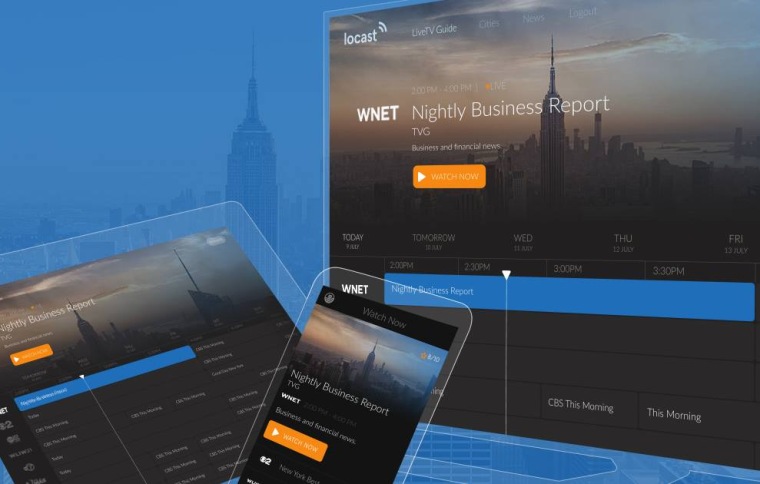The owners of the major broadcast networks have filed a lawsuit against Locast, a streaming service that makes broadcast TV available for free, claiming it threatens billions of dollars in copyrighted content.
CBS, Disney, Fox and NBCUniversal are each part of the lawsuit, which was filed Wednesday in New York’s Southern District court. The parties say that the service, Locast, is stealing their copyright and has no right to rebroadcast their signal. NBCUniversal is the parent company of NBC News.
Locast, a nonprofit organization that launched in early 2018, became popular with cord cutters but contentious for those in the TV business because broadcasters receive billions of dollars of carriage license fees from distributors such as cable companies, satellite firms and telecom providers.
The fees that distributors receive from TV networks have gained a renewed focus in recent years as declining subscriber numbers have caused tension between the two sides. When the size of those fees are in dispute, TV networks go dark for many consumers and distributors run the risk of subscriber defections.
An example of this is currently playing out between CBS and AT&T’s DirecTV service. The two companies are at an impasse over long-term rebroadcast fees, and AT&T has made Locast available via its set-top boxes to help consumers continue to watch CBS even while the network’s signal is blacked out.
Locast now has hundreds of thousands of subscribers and offers its service free of charge, though it does solicit donations on air in between programming, according to the lawsuit.
The filing also alleges that Locast is stripping Nielsen codes from the networks, which prevents those services from picking up ratings credit when their programming is viewed.
“Locast is not the Robin Hood of television. Instead, Locast’s founding, funding and operations reveal its decidedly commercial purposes,” the lawsuit states. “It is operating for its own benefit and for the commercial benefit of companies that are among the largest commercial pay-TV distributors in the country.”
The suit suggests that Locast was founded by a former executive from satellite service Dish, David Goodfriend, and has received $500,000 donation from AT&T, which owns DirecTV.
Locast follows on the heels of a similar business called Aereo, which was backed by media mogul Barry Diller. Aereo lost a Supreme Court decision after its service was found to infringe on copyright law through the use of tiny antennae used to transit network signals, which were then streamed over the internet.
By deciding not to charge, Locast had perhaps hoped to claim it is simply boosting the network signal, which is sometimes hard to receive because of tall buildings.
David Hosp, an attorney for Locast, said the lawsuit was baseless.
“Locast is an independent, nonprofit organization that provides a public service retransmitting free over-the-air broadcasts,” Hosp said. “Its activities are expressly permitted under the Copyright Act. The fact that no broadcasters have previously filed suit for more than a year and a half suggests that they recognize this. We look forward to defending the claims — and the public’s right to receive transmissions broadcast over the airwaves — in the litigation.”
An AT&T spokesperson said in an emailed statement that Locast "offers consumers an innovative new way to access free over-the-air signals.'
"We support technologies that give consumers more choices and better access to this local content," the spokesperson said.
